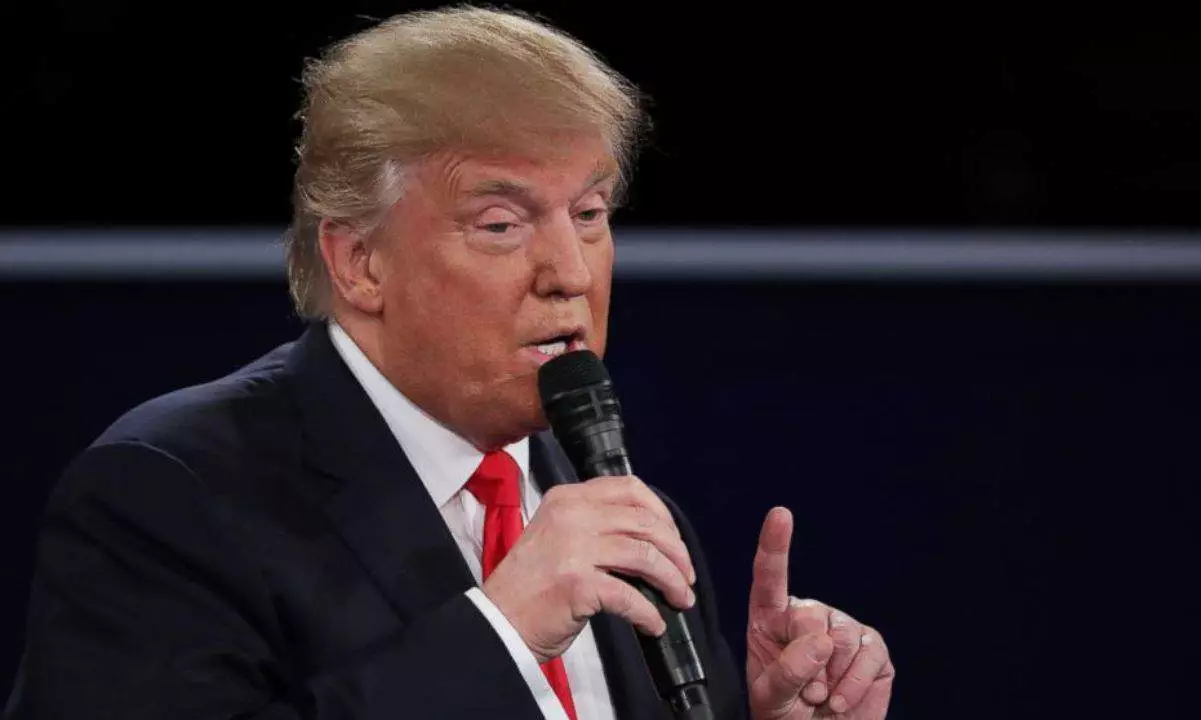Donald Trump’s recent pardoning of BitMEX and its founders has sent shockwaves through both political and cryptocurrency landscapes, raising eyebrows and igniting fervor among enthusiasts and skeptics alike. When Trump granted clemency to an entire corporation, he didn’t just rewrite the playbook on presidential pardons; he also threw a lifeline to figures embroiled in the murky waters of cryptocurrency regulation. Despite the controversy surrounding such a bold move, it’s important to assess what this means for the ever-evolving world of digital finance.
Big tech industry players, like BitMEX founders Arthur Hayes and Benjamin Delo, have faced legal challenges that many perceive as politically motivated. Trump’s pardons may signal an attempt to shift the narrative surrounding regulation and financial operations in the crypto realm, hinting that perhaps innovation should not face the same level of scrutiny as traditional financial institutions. The pardon also offers a glimpse into how the political climate is morphing, making room for radical change and challenging the goalposts concerning what is deemed acceptable behavior in emerging markets.
A Shift in Power Dynamics
For supporters of a free-market approach, the pardoning of figures like Hayes—who became the youngest African-American billionaire through his entrepreneurship—offers a potent commentary on America’s regulatory framework. These individuals are pioneers in their field, and while their actions did trigger legal implications, the underlying dynamic here suggests that the law has not necessarily kept pace with the innovation within the tech sector. By shielding them from penal consequences, Trump has illuminated the need for broader discussions about the laws governing financial technology and blockchain.
Furthermore, as cryptocurrencies permeate the mainstream financial systems, the discrepancy in how established financial institutions and nascent crypto platforms are treated could become a pivotal issue. Trump’s moves may pave the way for a just paradigm shift, where regulatory bodies focus more on fostering innovation than stifling it through unwavering adherence to outdated laws.
The Psychology of Pardon Culture
One must also consider the political ramifications of these pardons. In Trump’s case, it grants him a rabid fan base among crypto enthusiasts, individuals who may feel marginalized by the traditional banking system. This alliance could manifest significantly in future elections, where cryptocurrency advocates view Trump as the defender of their interests. The resonance of his actions echoes far beyond his current presidency; it also sets the stage for his re-election campaign. Democrats and more progressive figures attempting to regulate cryptocurrency may find themselves facing an energized opposition that visualizes Trump as the unexpected knight in crypto armor.
This very psychology is not limited to BitMEX; other big names in crypto are currently on the radar for potential pardons. Sam Bankman-Fried, the erstwhile crypto darling turned pariah, is serving a 25-year sentence but remains tethered to the political discourse. Speculative whispers linger on whether SBF could repay his debt to society in the eyes of Trump through a potential pardon. Meanwhile, Changpeng Zhao (CZ), founder of Binance, is also the subject of fervent speculation—what would a pardon mean for his career and Binance’s future?
The Implications of Clemency and Speculation
The gravity behind clemency decisions extends to other influential figures like Roger Ver. Dubbed “Bitcoin Jesus,” Ver is currently fighting charges that cast shadows over his icon status in the crypto community. As these developments unfold, the motivation for pardon speculation becomes a driving force within cryptocurrency circles. The assessment of who might be next highlights a unique bond forming between Trump’s administration and the digital finance community, which may reshape regulatory frameworks for years to come.
Many traditionalists labor under the misconception that this kind of political favoritism undermines the integrity of law enforcement. Yet, it’s imperative to recognize that these figures symbolize a new age of digital innovation that disregards previous notions of authority and compliance. The tension here lies not just in legality but in the profound philosophical debate over freedom versus regulation. The question remains, are we watching the dawning of a new era in which the establishment is being challenged by those who dare to innovate?
Revisiting the Narrative
While the initial round of pardons has come and gone, the aftershocks may lead to an unprecedented reshaping of how both the law and political climate view cryptocurrency. Questions surrounding ethical practices and compliance will continue to be tangled; this controversy will force regulators and lawmakers to recalibrate their understanding of a digitally-led economy. Ultimately, Trump’s era may represent a watershed moment—a persistent ambivalence toward the status quo, with a bold embrace of the unpredictable essence of crypto.
This reshaping of the legislative landscape could become a hallmark during the back-and-forth between regulation and innovation. The spotlight on figures like Hayes, Bankman-Fried, and Zhao fosters a discourse that could redefine not only how cryptocurrency operates but pretty much entire financial systems in the United States. As myriad puzzles unfold, one thing remains certain: the future of digital finance may be more intertwined with politics than ever before.

